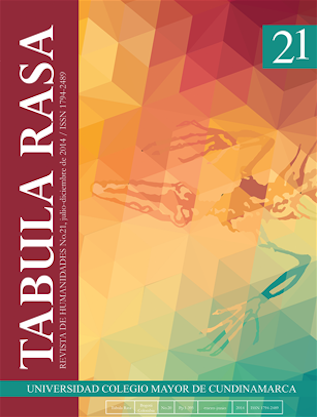Islamic Feminism, Intersectionality and Decoloniality
Feminismo islámico, interseccionalidad y decolonialidad
Show authors biography
This paper argues that intersectionality provides Islamic feminism with a useful approach to understanding the lived experiences of Muslim women. In order to become truly emancipatory, however, intersectionality should be combined with a decolonial approach. Though de-centering the secular liberal ontology of mainstream western feminism and calling for a critical analysis of the global structures that produce and reproduce the relations of inequality that affect Muslim women, a decolonial intersectional approach can take the expanding field of Islamic feminism even further.
Article visits 170 | PDF visits 107
Downloads
Ali, Kecia. 2008. Sexual ethics and Islam: Feminist reflections on Qur’an, Hadith, and jurisprudence. Chester, Oneworld Publications.
Barlas, Asma. 2002. “Believing women”, en: Islam: Unreading patriarchal interpretations of the Qur’an. Pp. 361-368. Texas, University of Texas Press.
Cooey, Paula M., William R. Eakin y John B. McDaniel (eds.). 1991. After Patriarchy: Feminist Transformations of the World Religions. Nueva York, Sri Satguru Publications.
Denis, Ann. 2008. “Intersectional Analysis: A Contribution of Feminism to Sociology”, International Sociology, 23(5): 677-694.
El Fadl, Khaled Abou. 2001. Speaking in God’s name: Islamic law, authority and women. Londres, Oneworld Publications Ltd.
Esack, Farid. 1997. Quran, liberation & pluralism: an Islamic perspective of interreligious solidarity against oppression. Londres, Oneworld Publications Ltd.
Lutz, H., M.T. Herrera Vivar & L. Supik. (eds.). 2011. Framing Intersectionality: Debates on a Multi-Faceted Concept in Gender Studies. Famham, Ashgate.
Mernissi, Fatima. 1991. Women and Islam: An historical and theological inquiry. Oxford, Blackwell, South Asia Books.
Mohanty, C. T. 1988. Under Western eyes: Feminist scholarship and colonial discourses. Feminist review, 30: 61-88.
Nash, J. 2008. “Re-Thinking Intersectionality”, Feminist Review, 89: 1-15.
Phoenix, Ann. 2006. “Editorial: Intersectionality”. European Journal of Women’s Studies 13(3): 187-192.
Rahman, Fazlur. 2009. Major Themes of the Qur’an. Chicago, University of Chicago Press.
Vuola, Elina. 2001. God and the government: Women, religion, and reproduction in Nicaragua. Documento para el Encuentro de la Latin American Studies Association (LASA). Washington DC, Septiembre 6-8. [documento PDF]. Disponible en: http://lasa. international.pitt.edu/lasa2001/vuolaelina.pdf
Wadud, Amina. 1999. Qur’an and Women. Rereading the sacred text from a woman’s perspective. Nueva York, Oxford University Press.
Yuval-Davis, Nira. 2006. “Intersectionality and Feminist Politics”. European Journal of Women’s Studies, 13(3): 193-209




